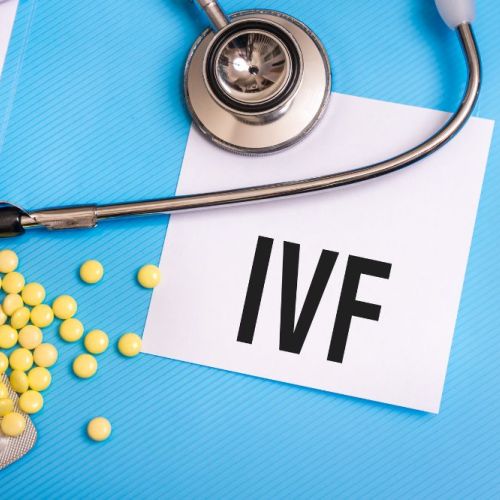How to Improve Reproductive Health Naturally

For anyone who’s thinking about getting pregnant, either in the near future or somewhere down the road, it’s never too early to start thinking about your reproductive health. Some factors are out of your control, but there are some things you can do to give yourself the best possible chance of starting a family. If you’ve never given any thought to how to improve reproductive health naturally, it’s a good time to get started.
The experts at the California Center for Reproductive Health understand that making good lifestyle choices isn’t always easy. Our team provides expert guidance to help people understand how to do what they can for their reproductive health.
Get Moving
Regular moderate exercise has a positive impact on your overall health, and it can also help improve the health of your reproductive system. This is true for both men and women. The key to making regular exercise a habit is to find an activity that you find enjoyable. If you hate jogging, that doesn’t mean you can’t lead an active lifestyle. Try swimming, dancing, or bicycling instead. If you’ve been leading a sedentary lifestyle, talk to your doctor about how to gradually increase your activity level.
While it’s important to include some exercise in your daily routine, over exercising can have the opposite effect. Very strenuous exercise can interfere with ovulation, so work on being physically active, but don’t overdo it.
Work Toward a Healthy Body Weight
Being either overweight or underweight can have an impact on hormones and fertility in both men and women. In women, when you’re not at a healthy weight, it can be hard to conceive, and if you do get pregnant, you’re at a higher risk of having complications or a miscarriage. Men who aren’t at a healthy body weight are more likely to have lower sperm count and lower semen volume.
If your body mass index is too high or too low it can also impact the effectiveness of some types of fertility treatment such as medication that induces ovulation. Women who lose as little as 5 to 10 percent of their body weight can improve their chances of getting pregnant and having a healthy pregnancy. Work on choosing nutritious foods and aim to get closer to a healthy body weight.
Kick Bad Habits
Most people know that some habits such as smoking or drinking excessively aren’t healthy but may not stop to think about the impact these habits may have on fertility. Smoking has a negative impact on hormone production. It can weaken sperm production in men and in women, and it can damage ovaries and eggs.
If you’re a smoker, kicking the habit is one of the best things you can do to improve reproductive health naturally. Another thing to consider is the impact alcohol can have on your reproductive health. Drinking excessively can make it more difficult to conceive and can be harmful to your overall health. Work on kicking bad habits like smoking and drinking to help improve reproductive health naturally.
For more tips on how to improve your reproductive health, get in touch with the experts at the Center for Reproductive Health.
Eliran Mor, MD
Reproductive Endocrinologist located in Encino, Santa Monica, Valencia & West Hollywood, CA
FAQ
Reproductive endocrinology and Infertility is a sub-specialty of Obstetrics and Gynecology. In addition to managing medical and surgical treatment of disorders of the female reproductive tract, reproductive endocrinologist and infertility (REI) specialists undergo additional years of training to provide fertility treatments using assisted reproductive technology (ART) such as in vitro fertilization.
Reproductive endocrinologists receive board certification by the American Board of Obstetrics and Gynecology in both Obstetrics and Gynecology and Reproductive Endocrinology and Infertility.
In general, patients should consider consulting with an REI specialist after one year of trying unsuccessfully to achieve pregnancy. The chance of conceiving every month is around 20%, therefore after a full year of trying approximately 15% of couples will still not have achieved a pregnancy.
However, if a woman is over the age of 35 it would be reasonable to see a fertility specialist earlier, typically after 6 months of trying.
Other candidates to seek earlier treatment are women who have irregular menses, endometriosis, fibroids, polycystic ovary syndrome (PCOS), women who have had 2 or more miscarriages, or problems with the fallopian tubes (prior ectopic pregnancy).
Approximately 1/3 of the time cause for infertility is a female factor, 1/3 of the time a male factor, and the remaining 1/3 a couples’ factor.
At CCRH, we emphasize the importance of establishing a correct diagnosis. Both partners undergo a comprehensive evaluation including a medical history and physical exam.
Furthremore, the woman’s ovarian reserve is assessed with a pelvic ultrasound and a hormonal profile. A hysterosalpingogram (HSG) will confirm fallopian tube patency and the uterine cavity is free of intracavitary lesions. A semen analysis is also obtained to evaluate for concentration, motility, and morphology of the sperm.
Additional work up is then individualized to direct the best possible treatment option for each couple.
In vitro fertilization (IVF) is the process that involves fertilization of an egg outside of a woman’s body.
The process starts with fertility drugs prescribed to help stimulate egg development. In your natural cycle, your body is only able to grow one dominant egg, but with stimulation medication we can recruit multiple eggs to continue to grow. After about 8-10 days of stimulation, the eggs are surgically retrieved and then fertilized with sperm in a specialized laboratory. Fertilized eggs are then cultured under a strictly controlled environment within specialized incubators in the IVF laboratory for 3-5 days while they develop as embryos. Finally, embryos (or an embryo) are transferred into the uterine cavity for implantation.
Before deciding if IVF is the right choice, it’s important to sit down with an REI specialist to discuss available treatment options. For some people, other methods such as fertility drugs, intrauterine insemination (IUI) may be the best first choice treatment. At CCRH, we believe each individual couple is unique and not everyone needs IVF.
While not painful, the fertility medications may some side effects including headaches, hot flashes, mood swings, and bloating. The injection sites may also bruise.
Unfortunately, no. Many people think once they start IVF it’s a matter of time that they will be pregnant and have a baby. But according to national statistics per the Society of Assisted Reproduction (SART), on average 40% of assisted reproduction cycles achieve live births in women under age 35. The chances of success then continue to decrease with advancing age.
At CCRH, we employ only evidence-based interventions to ensure patient safety and optimal outcome. While we cannot guarantee a baby, we guarantee that you will receive the best, most advanced, personalized care to help you maximize your chance of a baby.
The average IVF success rate (success measured in live birth rate) using one’s own eggs begins to drop around age 35 and then rapidly after age 40. This is due to the decline in egg quantity and egg quality as a woman ages.
Our clinic’s success rate consistently beats the national average year after year.
Individual insurance plans often do not have any coverage for infertility treatments. If you have a group plan, you can call members services to see if they have coverage for infertility (including consultation/workup and IVF).
After your consultation with our REI specialist, one of our dedicated account managers with sit with you to go over the cost of treatment.




